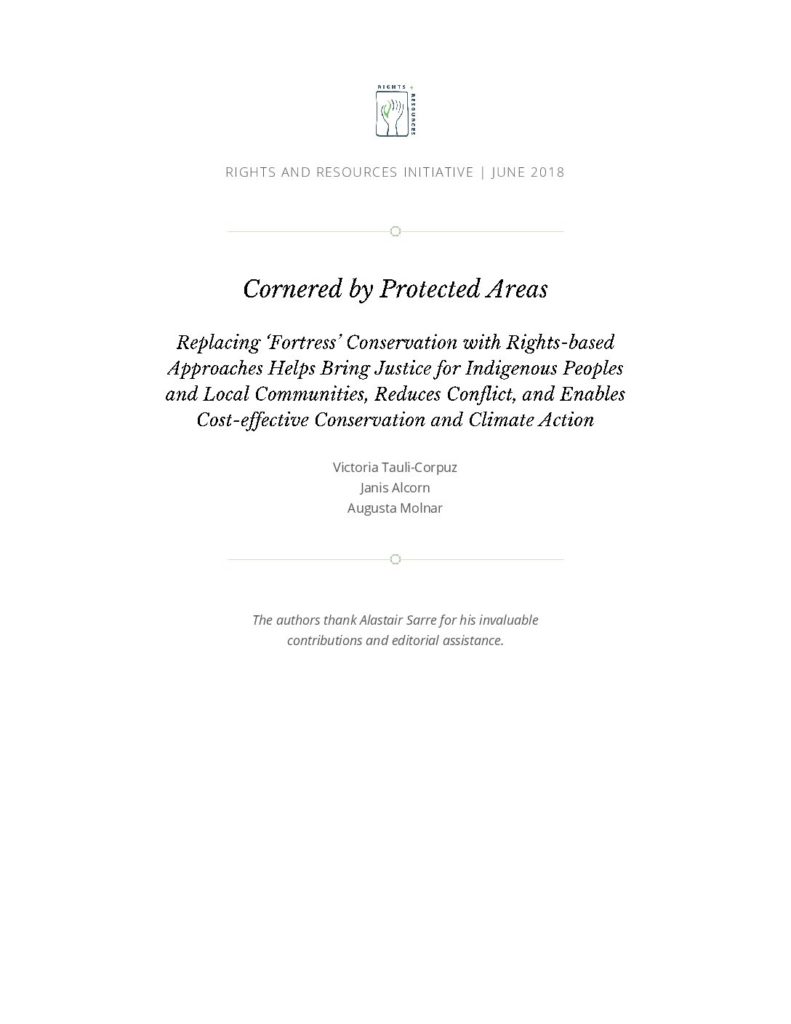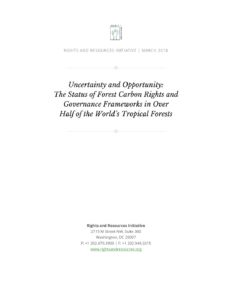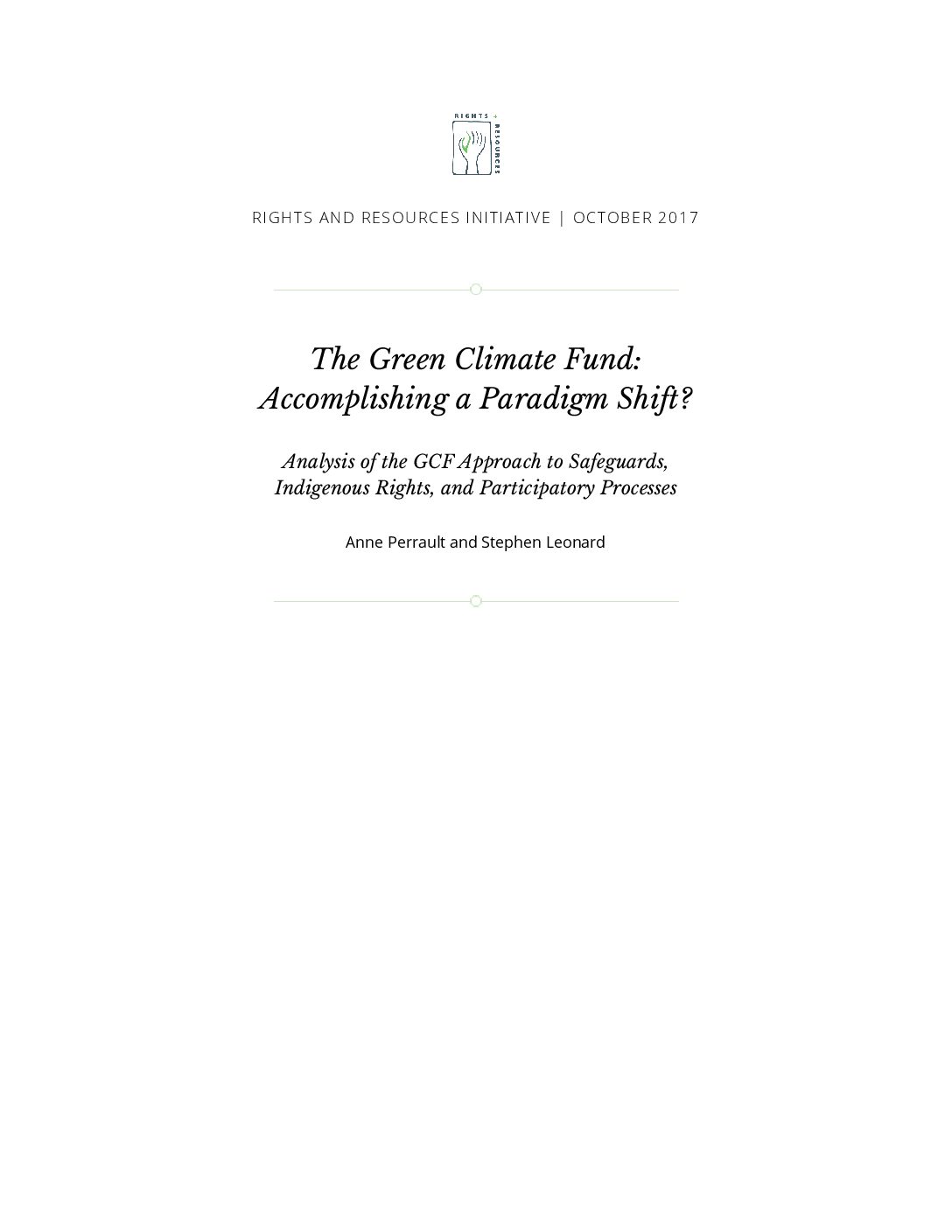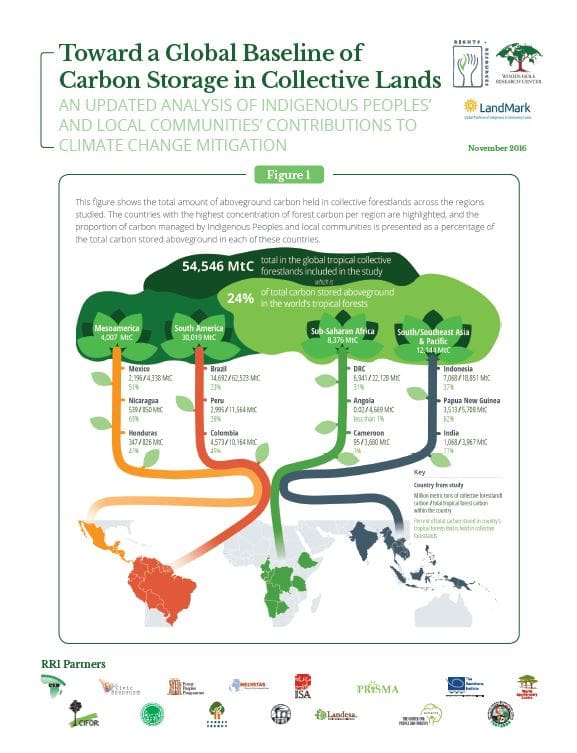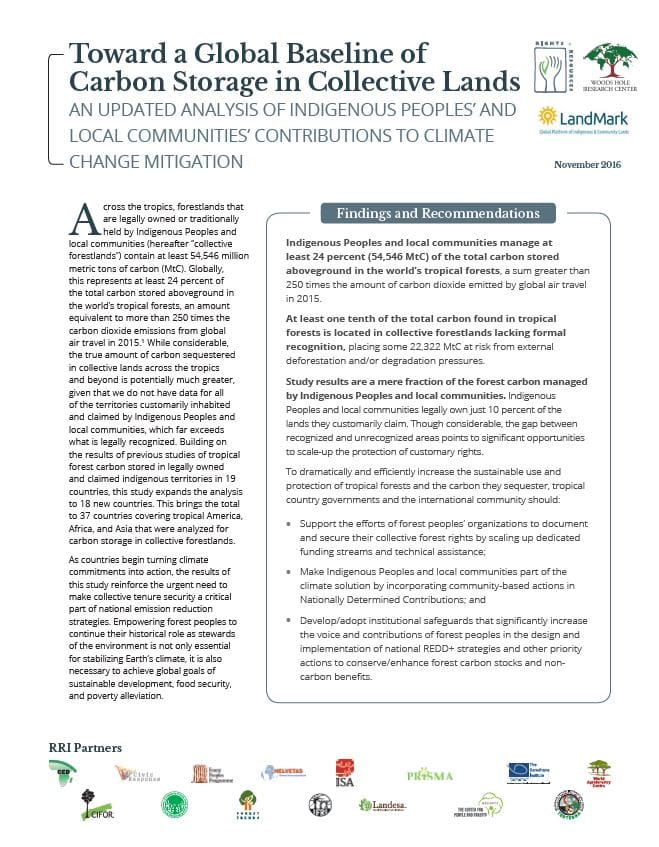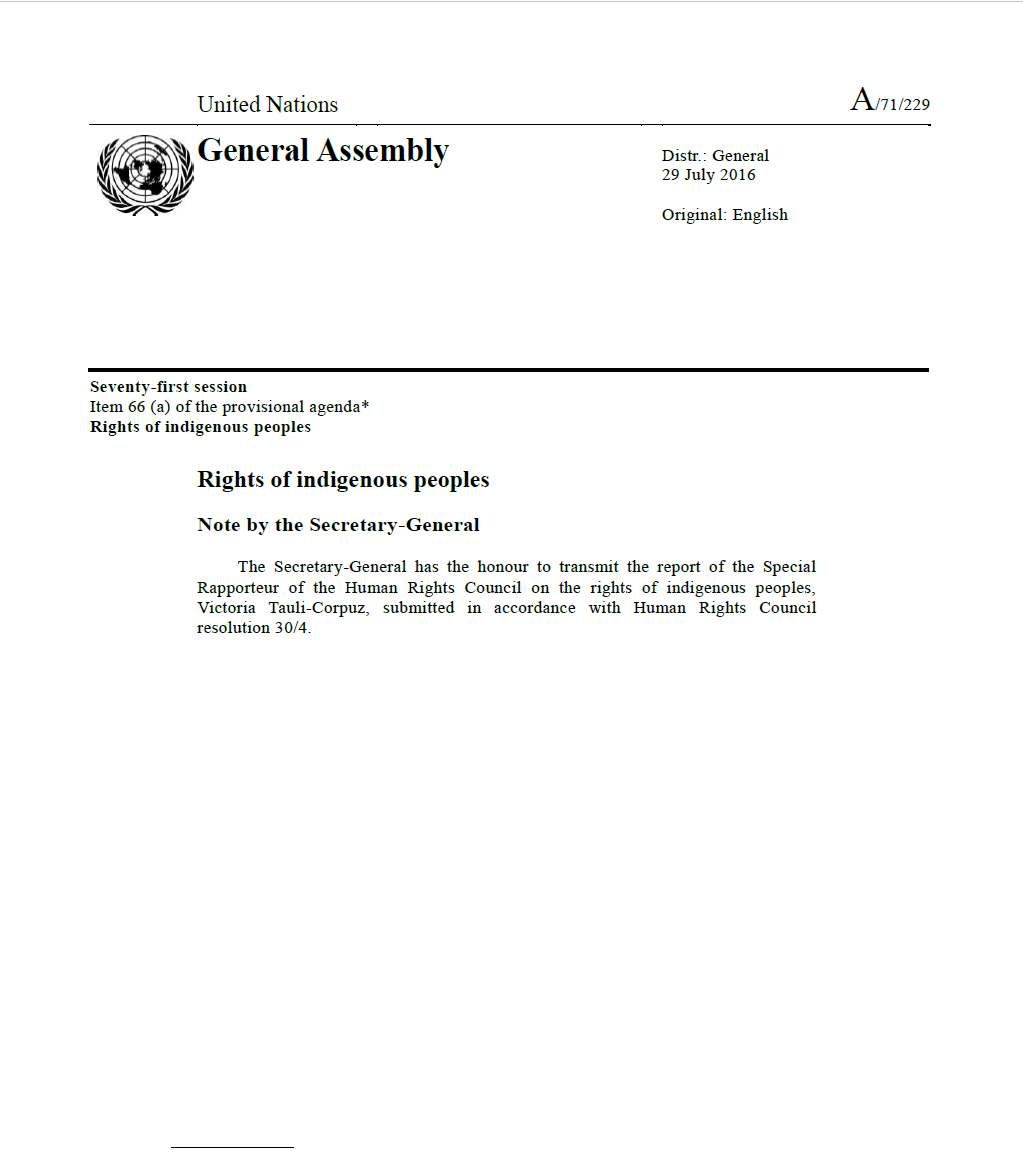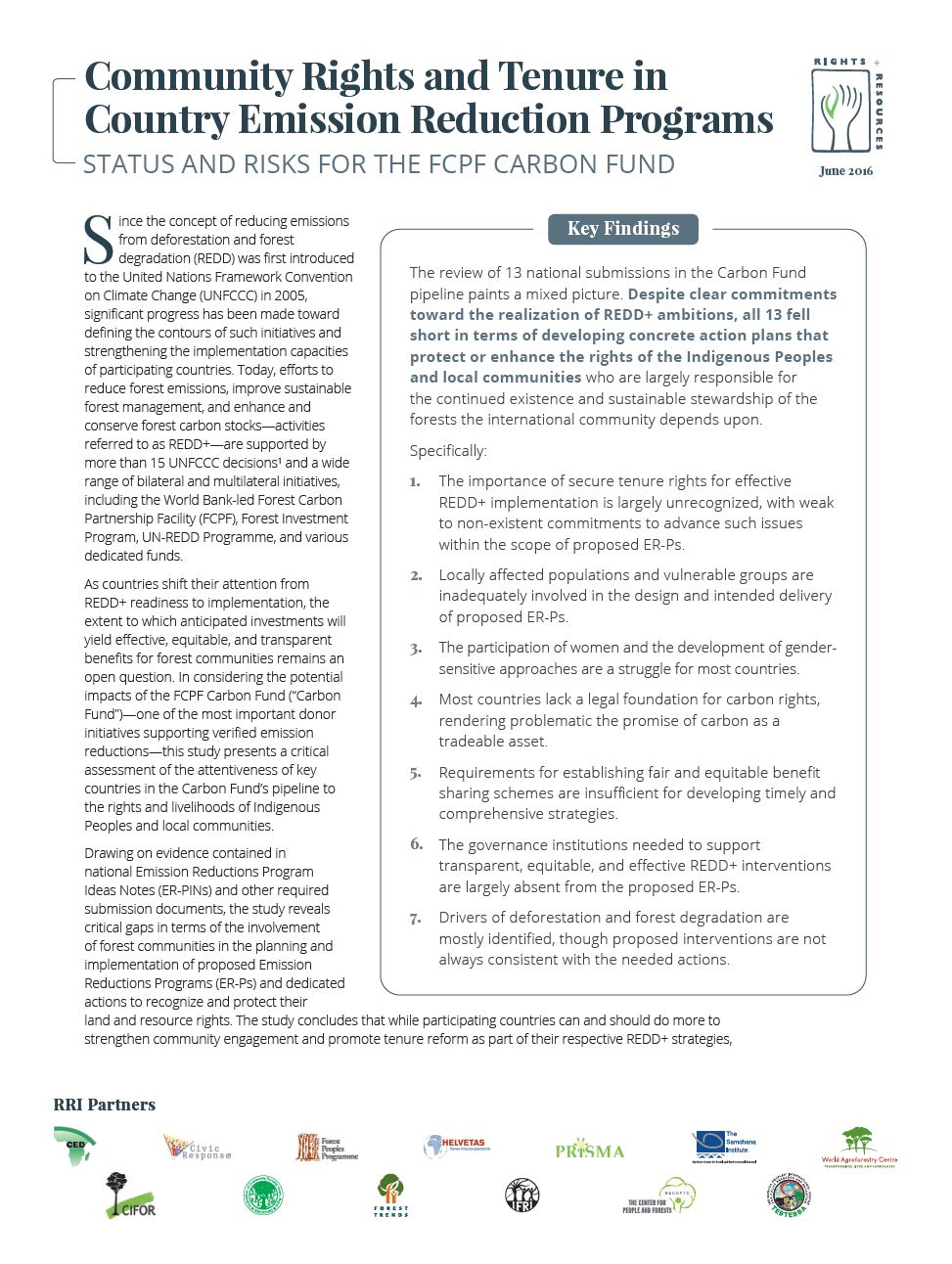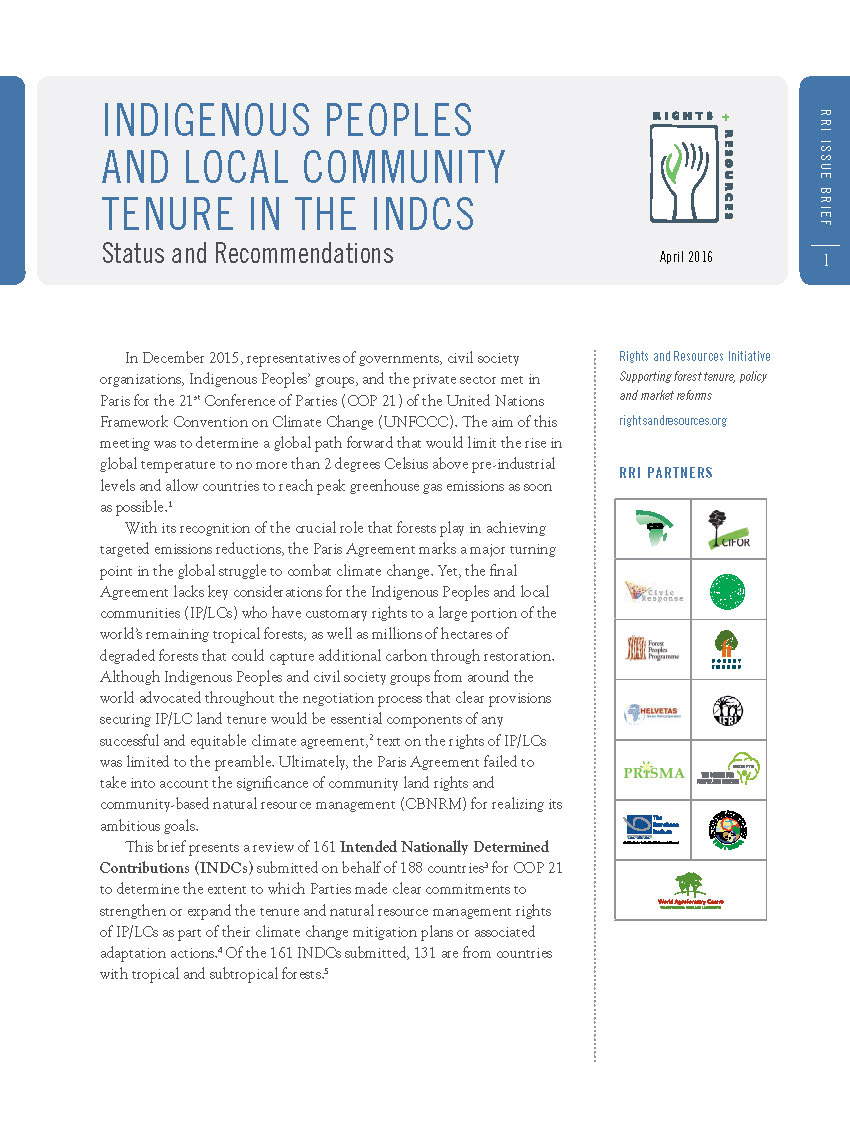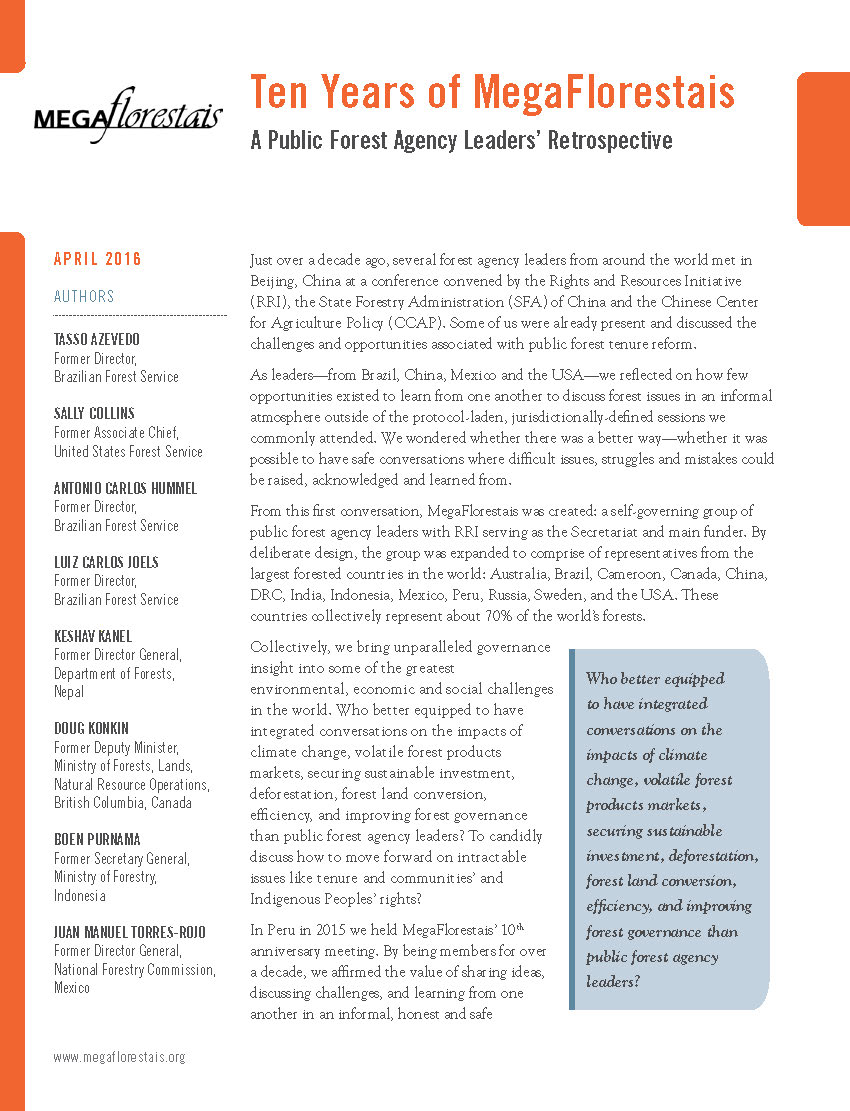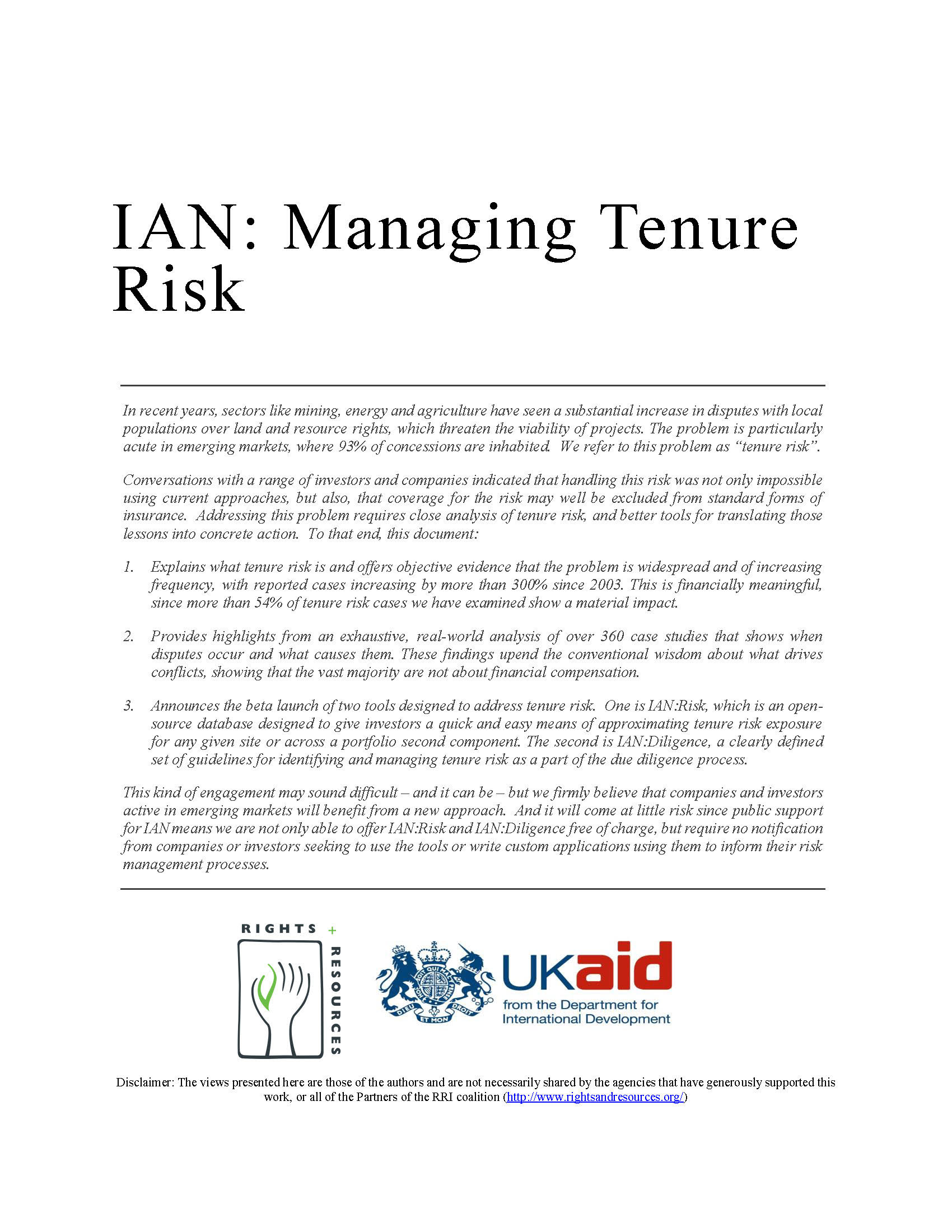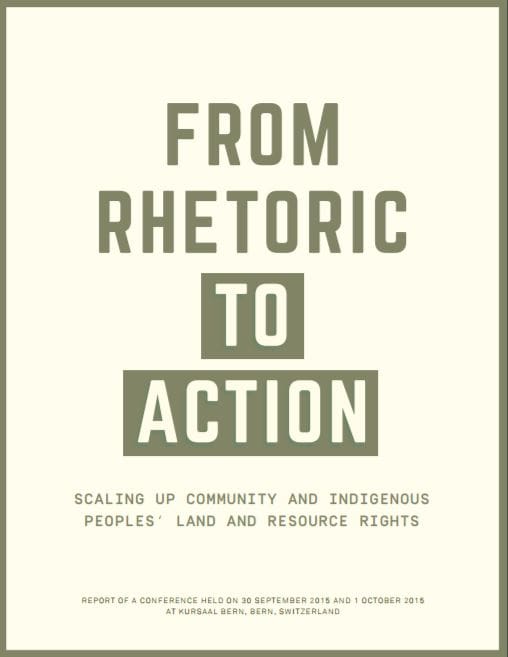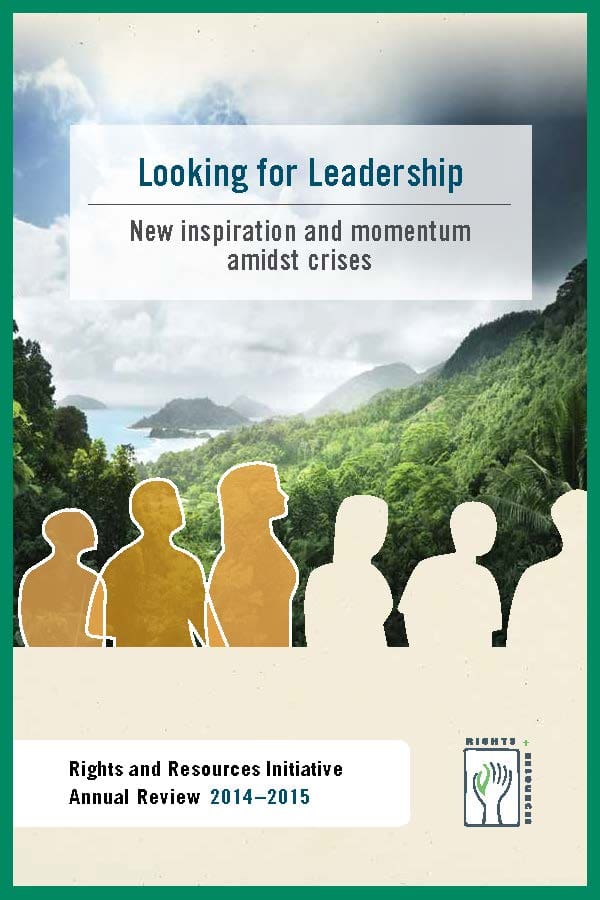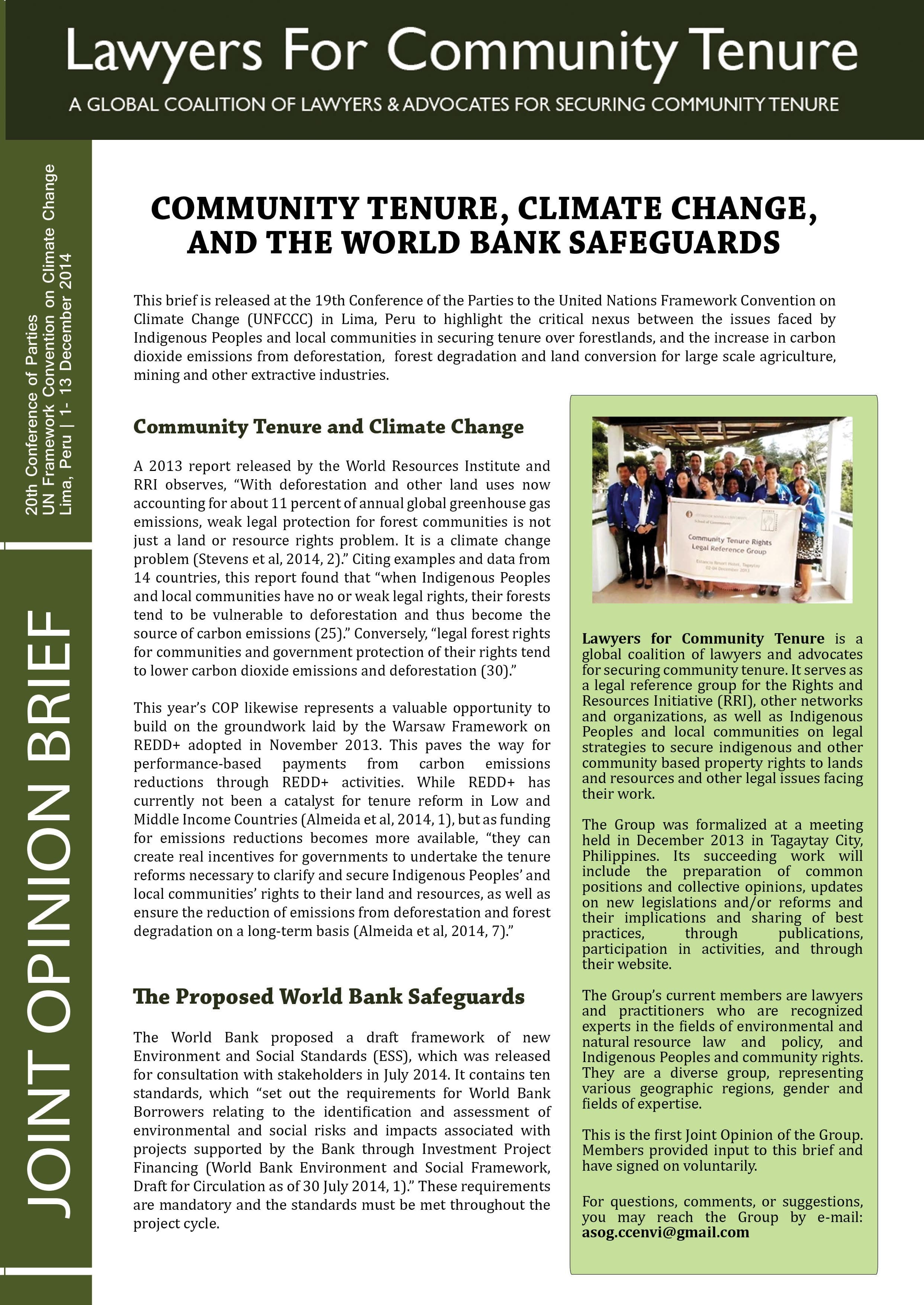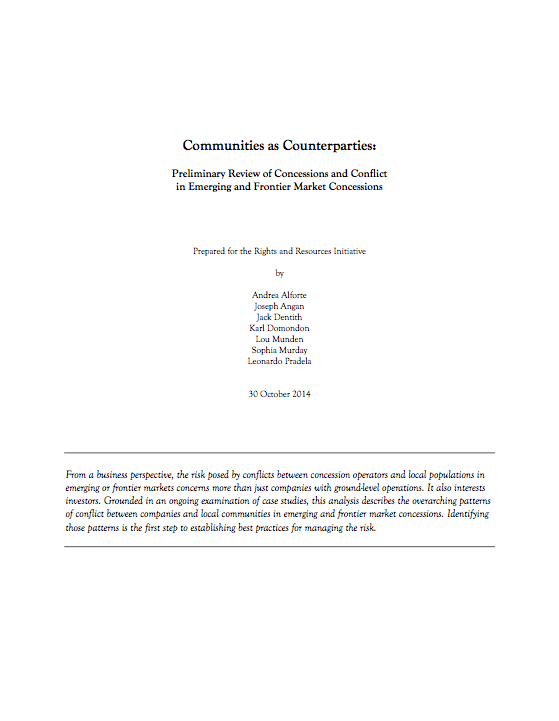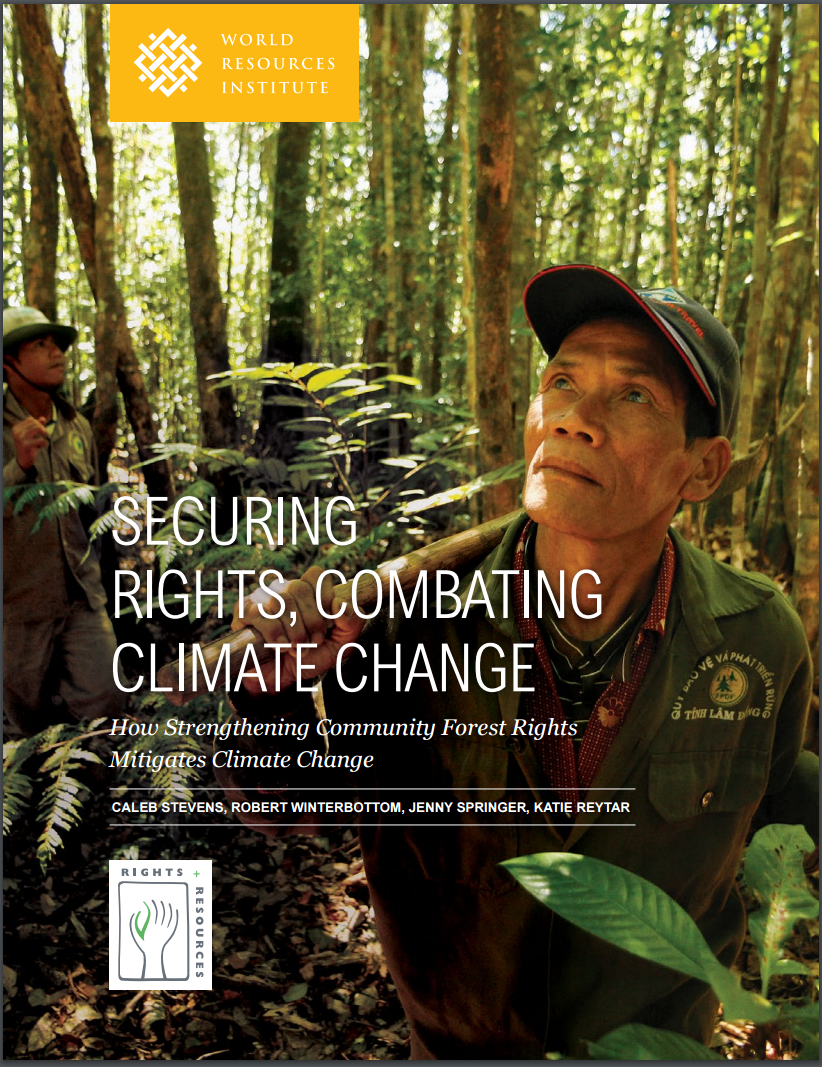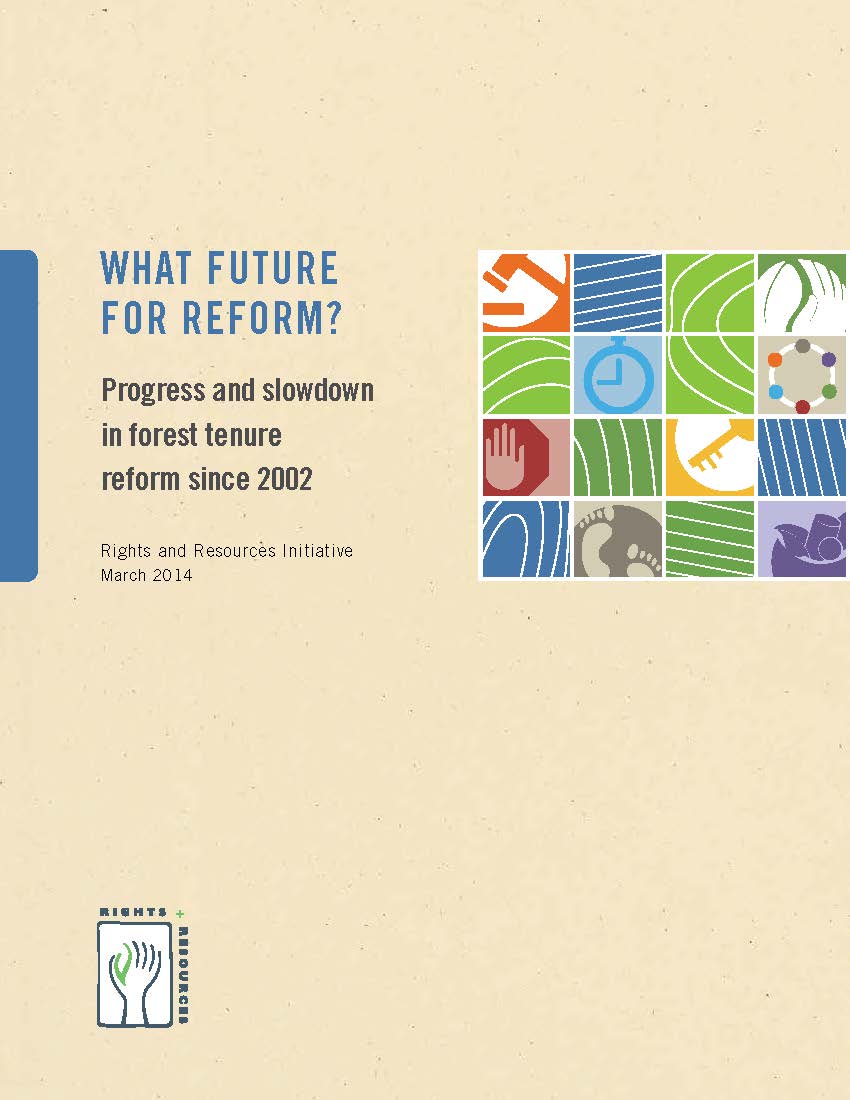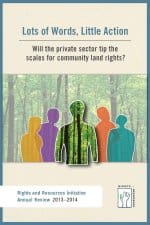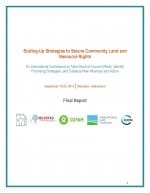
At a Crossroads: Consequential Trends in Recognition of Community-Based Forest Tenure from 2002-2017
This analysis reports on trends in global forest tenure from 2002-2017. It is the fourth in a series of analyses monitoring the legal recognition of forest tenure around the world.
Despite widespread poverty and insecure resource rights, evidence shows that Indigenous Peoples and local communities are still spending their limited resources on conservation efforts. They are also achieving outcomes that are at least equivalent to those of government-funded protected areas. This brief shows an urgent need to replace the fortress-conservation model with rights-based approaches to both improve conservation outcomes and end human-rights abuses committed in the name of conservation.
This brief presents a review of the nominal progress made in the national-level laws and regulations that govern the carbon trade and define the rights of parties—across a sample of 24 countries in Africa, Asia and Latin America. These countries collectively hold more than 50 percent of global tropical and subtropical forests.
This brief highlights key attributes of national constitutions, laws, and regulations that play a fundamental role in protecting indigenous and rural women’s rights to community forests and other community lands. These legislative best practices were derived from a 2017 analysis of over 400 national laws and regulations, Power and Potential, which evaluates the extent to which women’s rights to community forests are recognized by national law in 30 low- and middle-income countries (LMICs) across Africa, Asia, and Latin America.
Drawing on international standards and Green Climate Fund policy documents, this report traces the adequacy and implementation effectiveness of the Fund’s current institutional frameworks across a representative sample of approved projects. Noting critical gaps in nearly every aspect of the Fund’s operational modalities and project approval processes, the report calls on the GCF to take progressive steps to make Indigenous Peoples’ and local communities’ rights a key part of its climate actions going forward.
This paper proposes a framework of analysis to systematically classify and evaluate legal pathways to secure recognition of community-based property rights.
A new analysis from RRI provides an unprecedented assessment of legal frameworks regarding indigenous and rural women’s community forest rights in 30 developing countries comprising 78 percent of the developing world’s forests.
Amid the realities of major political turbulence, there was growing recognition in 2016 that community land rights are key to ensuring peace and prosperity, economic development, sound investment, and climate change mitigation and adaptation.
Compelling quantitative evidence of the unparalleled role that forest peoples have to play in climate change mitigation.
A new report quantifying the carbon stored aboveground in tropical forests that are legally owned or traditionally held by Indigenous Peoples and local communities in 37 countries across tropical America, Africa, and Asia.
Protected areas have the potential of safeguarding the biodiversity for the benefit of all humanity; however, these have also been associated with human rights violations against Indigenous Peoples in many parts of the world.
New research from RRI reveals that 13 submissions to the World Bank’s Carbon Fund–one of the most advanced REDD+ initiatives–either fail to recognize the importance of land rights or adequately include local peoples in key decision-making processes.
A review of submitted Intended Nationally Determined Contributions to determine the extent to which Parties made clear commitments to strengthen or expand the tenure and natural resource management rights of Indigenous Peoples and local communities as part of their climate change mitigation plans.
Just over a decade ago, several forest agency leaders from around the world met in Beijing, China at a conference convened by the Rights and Resources…
This report explains what tenure risk is and offers objective evidence that the problem is widespread and of increasing frequency, as well as provides highlights from a real-world analysis of over 360 case studies.
The aim of this conference was to take stock of efforts to scale up Indigenous Peoples’ and community land and resource rights worldwide and to…
The first analysis to quantify the amount of land formally recognized by national governments as owned or controlled by Indigenous Peoples and local communities around the world.
RRI’s annual review of the global state of rights and resources
This joint-opinion brief is released at the 19th Conference of the Parties to the United Nations Framework Convention on Climate Change (UNFCCC) in Lima, Peru to…
From a business perspective, the risk posed by conflicts between concession operators and local populations in emerging or frontier markets concerns more than just companies…
An analysis of the growing body of evidence linking community forest rights with healthier forests and lower carbon dioxide (CO2) emissions from deforestation and forest degradation.
While governments are increasingly recognizing local ownership and control of forests, forest tenure arrangements remain in dispute or unclear in many places, including low, middle, and high income countries.
While there were many encouraging pronouncements in 2013—from courts, governments, and some of the world’s largest corporations —unfortunately, progress for community land rights on the ground remains very limited.
In order to strengthen collective efforts to address these challenges and capitalize on current opportunities to scale up community land rights around the world, from…

